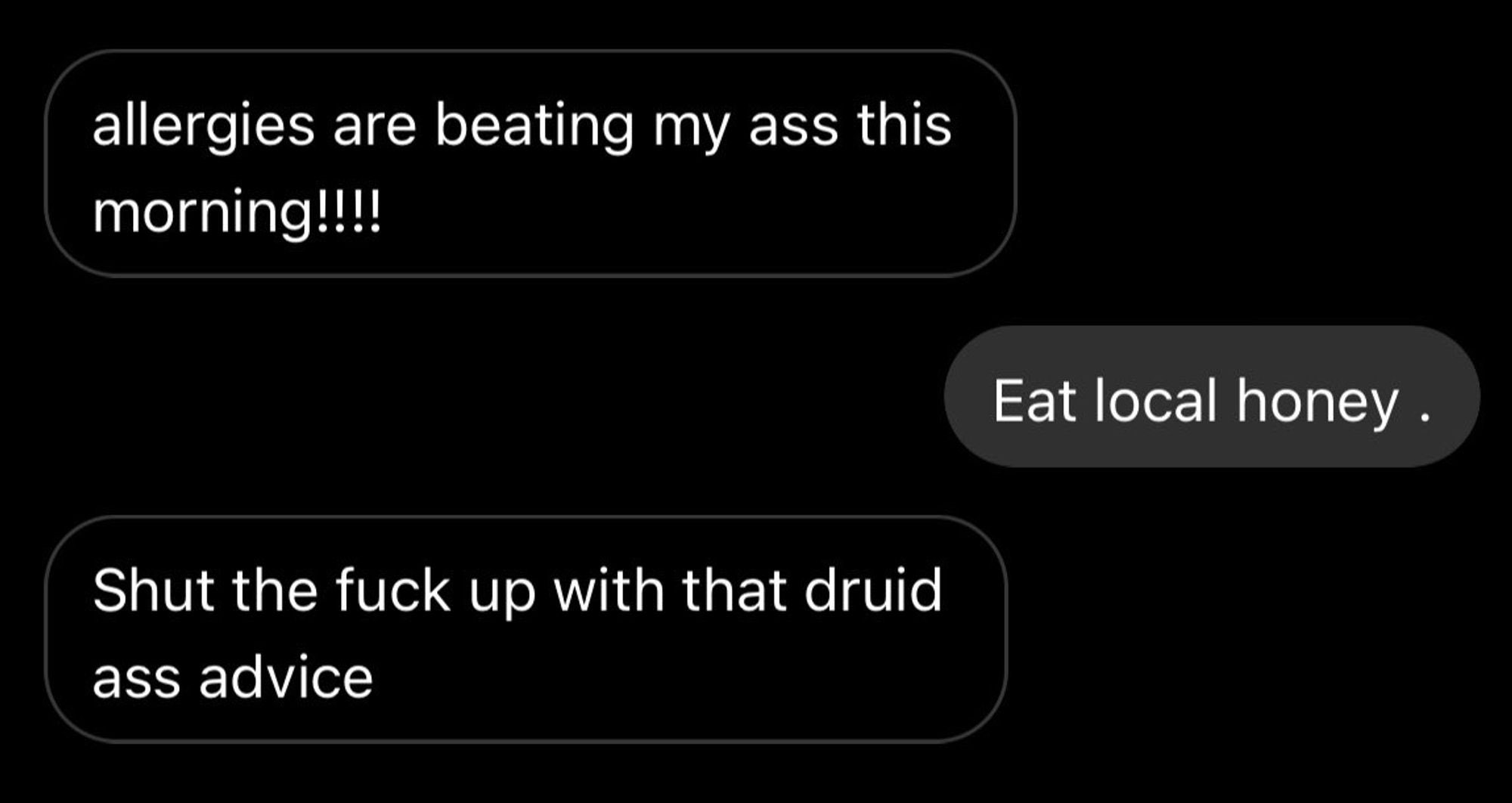this post was submitted on 29 Apr 2024
628 points (97.0% liked)
Funny: Home of the Haha
5829 readers
340 users here now
Welcome to /c/funny, a place for all your humorous and amusing content.
Looking for mods! Send an application to Stamets!
Our Rules:
-
Keep it civil. We're all people here. Be respectful to one another.
-
No sexism, racism, homophobia, transphobia or any other flavor of bigotry. I should not need to explain this one.
-
Try not to repost anything posted within the past month. Beyond that, go for it. Not everyone is on every site all the time.
Other Communities:
-
/c/TenForward@lemmy.world - Star Trek chat, memes and shitposts
-
/c/Memes@lemmy.world - General memes
founded 2 years ago
MODERATORS
you are viewing a single comment's thread
view the rest of the comments
view the rest of the comments

alright we doin this okay so most small-time beekepers at least (can't speak for the larger industrial ones) only rarely resort to providing sugar as a substitute for honey because bees massively overprodice it. Also, the lack of micronutrients is not supported by any literature I can find, and additionally sugar substitution should only occur during the winter regardless. Finally: if bees are being exploited they will just leave. Everything I've found indicates that under poor conditions the entire hive will swarm and just go somewhere else. I do think the point about impacting biodiversity is valid, but if that were a decider for whether a food source is vegan there would be a whole lot fewer crops on that list.
My dad is a beekeeper, so I can pretty much confirm what you're saying about sugar bricks/syrup in the winter. And actually there is some evidence online saying that beekeepers should keep honey in the hives.
As for migration, many wild bees hibernate, in-place over the winter, and the research regarding wild honey bees, although sparse, seems to suggest the same. Having bees stay in the same hive over the winter isn't necessarily unnatural.
On the swarming point, beekeepers try to observe and look out for specific signs of swarming in order to prevent this from happening. And if swarming does happen, beekeepers can set up swarm traps. My dad has done this in the past, and he has had some success.
The point about all of the above though is that beekeepers 1) intentionally rob the bees of the work (i.e. honey creation) they've contributed to over the course of the spring/summer/fall nectar flows, and 2) intentionally try to trap hives that want to escape due to a lack of good conditions - both immoral acts imo.
And the biodiversity impacts don't just affect food sources. Honey bees in such high populations that even modest beekeeping operations sustain overcrowd the native populations, capitalizing on nectar resources first, and risk native populations via virus and disease spillover. Native plants often have adapted along with native bees over time such that both species receive/perform pollination activities to 100% effectiveness. Honey bees are generalists, and so while they may pollinate more plants, they may only do so to 75% effectiveness or less (just throwing a number out there). So, plants get pollinated to lesser degrees with honey bees, and the leftover nectar for native bees often isn't enough to sustain populations meaningfully.
This is why when people say save the bees, the actual message of the campaign is geared towards native bees - not honey bees. There are capitalistic interests involved in keeping honey bees populations healthy and high to the detriment of local environments.
Shits gonna get even more complicated when we prove they have a conscience